Google will stop scanning content of personal emails
 Here’s a surprise announcement from Google: It will stop scanning the inboxes of Gmail’s free users for ad personalization at some point later this year. Google already doesn’t do this for business users who subscribe to its G Suite services, but until now, it routinely scanned the inboxes of its free users to better target ads for them.
Here’s a surprise announcement from Google: It will stop scanning the inboxes of Gmail’s free users for ad personalization at some point later this year. Google already doesn’t do this for business users who subscribe to its G Suite services, but until now, it routinely scanned the inboxes of its free users to better target ads for them.
It then combined that information with everything else it knows about its users to build its advertising profiles for them. Diane Greene, Google’s senior VP for Google Cloud, says the company made this decision because it “brings Gmail ads in line with how we personalize ads for other Google products.”
Read moreHacker selling over 1 million decrypted Gmail and Yahoo passwords on dark web
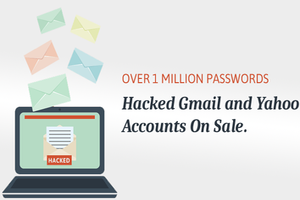 Hardly a day goes without headlines about any significant data breach. In past year, billions of accounts from popular sites and services, including LinkedIn, Tumblr, MySpace, Last.FM, Yahoo!, VK.com were exposed on the Internet.
Hardly a day goes without headlines about any significant data breach. In past year, billions of accounts from popular sites and services, including LinkedIn, Tumblr, MySpace, Last.FM, Yahoo!, VK.com were exposed on the Internet.
Now login credentials and other personal data linked to more than one Million Yahoo and Gmail accounts are reportedly being offered for sale on the dark web marketplace. The online accounts listed for sale on the Dark Web allegedly contain usernames, emails, and plaintext passwords. The accounts are not from a single data breach; instead, several major cyber-attacks believed to have been behind it.
Read moreSamsung smart fridge leaves Gmail logins open to attack
 Security researchers have discovered a potential way to steal users Gmail credentials from a Samsung smart fridge. Pen Test Partners discovered the MiTM vulnerability that facilitated the exploit during an IoT hacking challenge at the recent hacking conference.
Security researchers have discovered a potential way to steal users Gmail credentials from a Samsung smart fridge. Pen Test Partners discovered the MiTM vulnerability that facilitated the exploit during an IoT hacking challenge at the recent hacking conference.
The hack was pulled off against the smart fridge, part of Samsung’s line-up of Smart Home appliances which can be controlled via their Smart Home app. While the fridge implements SSL, it fails to validate SSL certificates, thereby enabling man-in-the-middle attacks against most connections. The internet-connected device is designed to download Gmail Calendar information to an on-screen display.
Read moreGoogle says its AI catches 99.9 percent of Gmail spam
 About a decade ago, spam brought email to near-ruin. The contest to save your inbox was on, with two of the world’s biggest tech companies vying for the title of top spam-killer. Microsoft boasted that its spam filters were removing all but 3 percent of the junk messages from Hotmail, the company’s online email service at the time.
About a decade ago, spam brought email to near-ruin. The contest to save your inbox was on, with two of the world’s biggest tech companies vying for the title of top spam-killer. Microsoft boasted that its spam filters were removing all but 3 percent of the junk messages from Hotmail, the company’s online email service at the time.
Google responded by claiming that its service, Gmail, removed all but about one percent of spam messages, adding that its false positives rate was also about one percent. It was a point of pride for the two companies, particularly Microsoft, whose Hotmail service once carried such a poor reputation for spam.
Read moreWhat Google shares about you
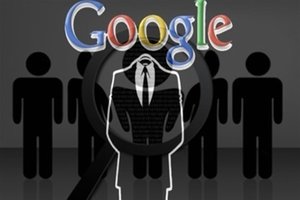 It’s no secret to anyone to know that Google keeps every bit of data it collects about each of its users. This data includes, but is not limited to, search phrase history, links clicked, Gmail conversations and so on.
It’s no secret to anyone to know that Google keeps every bit of data it collects about each of its users. This data includes, but is not limited to, search phrase history, links clicked, Gmail conversations and so on.
All data is kept and processed “in their ordinary course of business,” which obviously includes spam filtering, selecting relevant ads for users and the individual tuning of search results. This last piece is still not obvious to most users, but for the last few years each of us has had our very own Google. If you find something funny or unexpected, or you see your own website on the first page of search results, don’t rush to show this to your friends.
Read moreHow to check what Google knows about you?

It's easy to understand why privacy advocates and policymakers are sounding alarms about online privacy in general – and singling out Google in particular. If you use Google's search engine, Google knows what you searched for as well as your activity on partner Web sites that use its ad services.
The more Google knows about you, the more it can match you to an advertiser who thinks you are an ideal customer. Advertisers are willing to pay more for ads served to ideal potential customers. For instance, airlines want to target people who love to travel. Want to find out all the things Google knows about you? Here are 6 links that will show you some of the data Google has about you.
Read moreHackers are using Gmail drafts to steal data
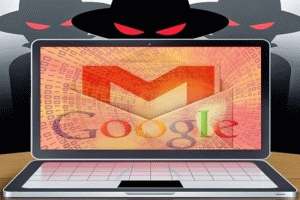 In his career-ending extramarital affair that came to light in 2012, General David Petraeus used a stealthy technique to communicate with his lover Paula Broadwell: the pair left messages for each other in the drafts folder of a shared Gmail account.
In his career-ending extramarital affair that came to light in 2012, General David Petraeus used a stealthy technique to communicate with his lover Paula Broadwell: the pair left messages for each other in the drafts folder of a shared Gmail account.
Now hackers have learned the same trick. Only instead of a mistress, they’re sharing their love letters with data-stealing malware buried deep on a victim’s computer. Researchers say they’ve found a strain of malware on a client’s network that uses that new, furtive form of “command and control”—the communications channel that connects hackers to their malicious software—allowing them to send the programs updates and instructions and retrieve stolen data.
Read moreHackers attack Gmail users
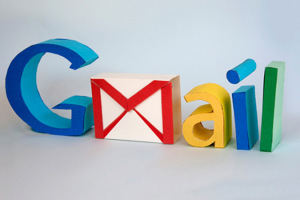 Having pretended to be Gmail Account Services hackers send harmful emails to account owners.
Having pretended to be Gmail Account Services hackers send harmful emails to account owners.
According to the researches of the Chinese security software company, called Trend Micro, hackers have launched a campaign, which gives itself as Google‘s support service and is directed against users of Gmail service. Hackers work in such a way: the victim gets email allegedly from Gmail Account Services in which the owner of an account is informed on the unknown user authorization in his account with the help of unrecognizable device. The expert of the Trend Micro Company Jay Yaneza noted that the email can really be confused with the original notice of Gmail; however the knowing and attentive user will be able to find some differences.
Read moreFacebook, Gmail, Skype face Russia ban under 'anti-terror' data snooping plan
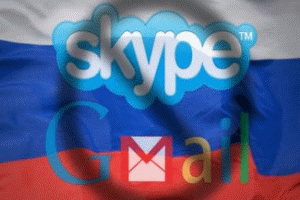 Russia's parliament has passed a bill that could see Western technology firms barred from operating if they fail to store Russian data within the country.
Russia's parliament has passed a bill that could see Western technology firms barred from operating if they fail to store Russian data within the country.
The legislation would require Silicon Valley companies, such as Facebook, Google’s Gmail, and Microsoft-owned Skype, to relocate Russian customer data back onto Russian soil in order to allow authorities to legally acquire and inspect data at will. Currently, Russian authorities have no powers to acquire data outside its borders, unless they submit a lawful mutual legal assistance request, which can be denied by that nation.
Read moreGoogle now encrypts Gmail traffic to and from its servers
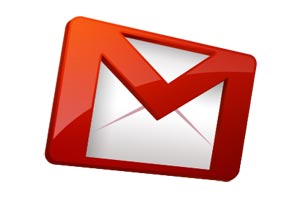 Google today filled one more privacy and security hole in its Gmail email service by encrypting all message traffic between email users, the search engine giant's email servers, and its data centers.
Google today filled one more privacy and security hole in its Gmail email service by encrypting all message traffic between email users, the search engine giant's email servers, and its data centers.
The full HTTPS encryption move was the next logical step to protecting Gmail users from the snooping eyes of government or malicious actors. "Starting today, Gmail will always use an encrypted HTTPS connection when you check or send email. Gmail has supported HTTPS since the day it launched, and in 2010 we made HTTPS the default. Today's change means that no one can listen in on your messages as they go back and forth between you and Gmail's servers--no matter if you're using public WiFi or logging in from your computer, phone or tablet," said Nicolas Lidzborski, Gmail Security Engineering Lead, in a blog post announcing the move.
Read more New secured zone of Google Play: secure messenger SafeUM for Android. Download, Install, Communicate
New secured zone of Google Play: secure messenger SafeUM for Android. Download, Install, Communicate
Axarhöfði 14,
110 Reykjavik, Iceland














